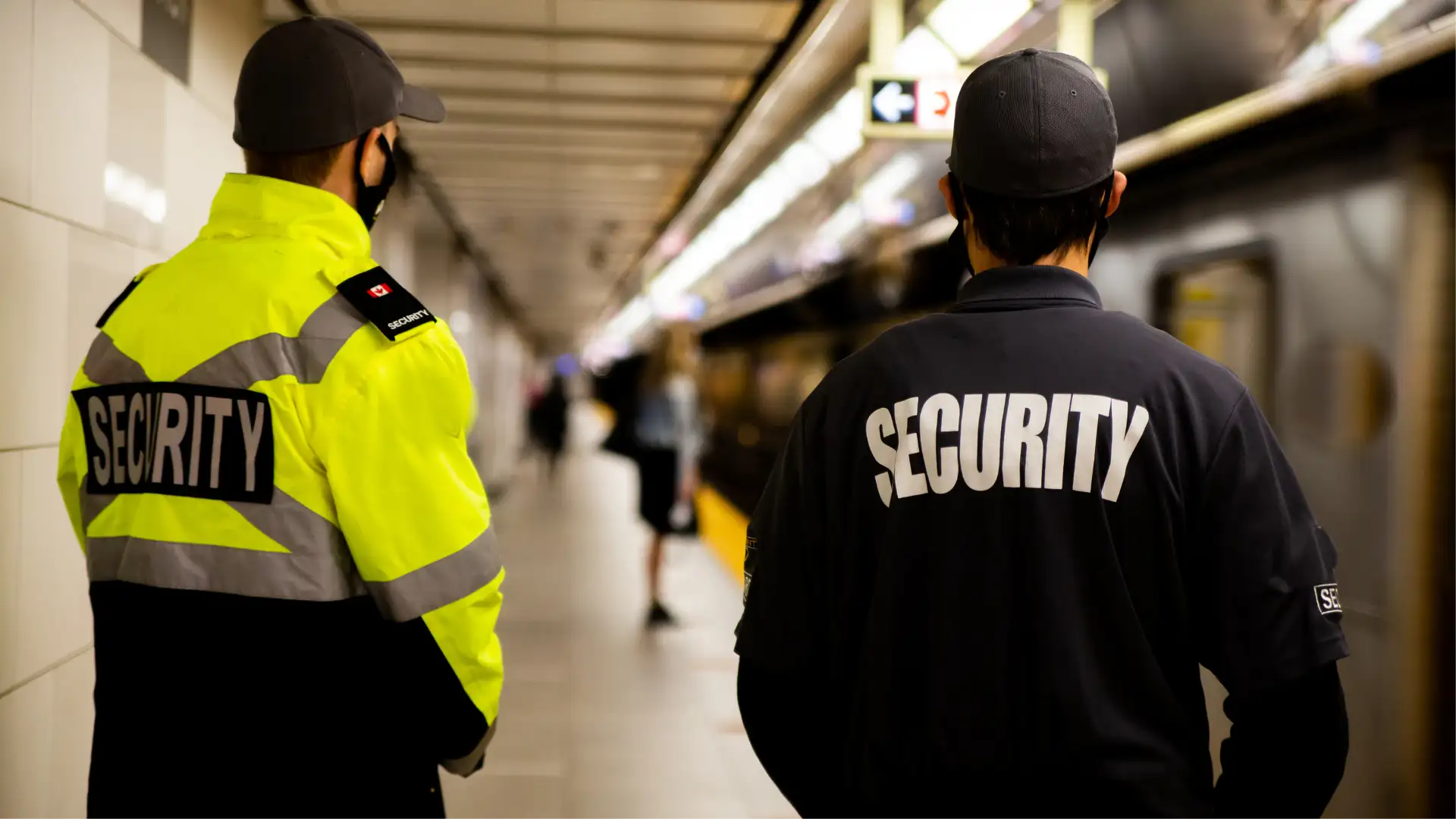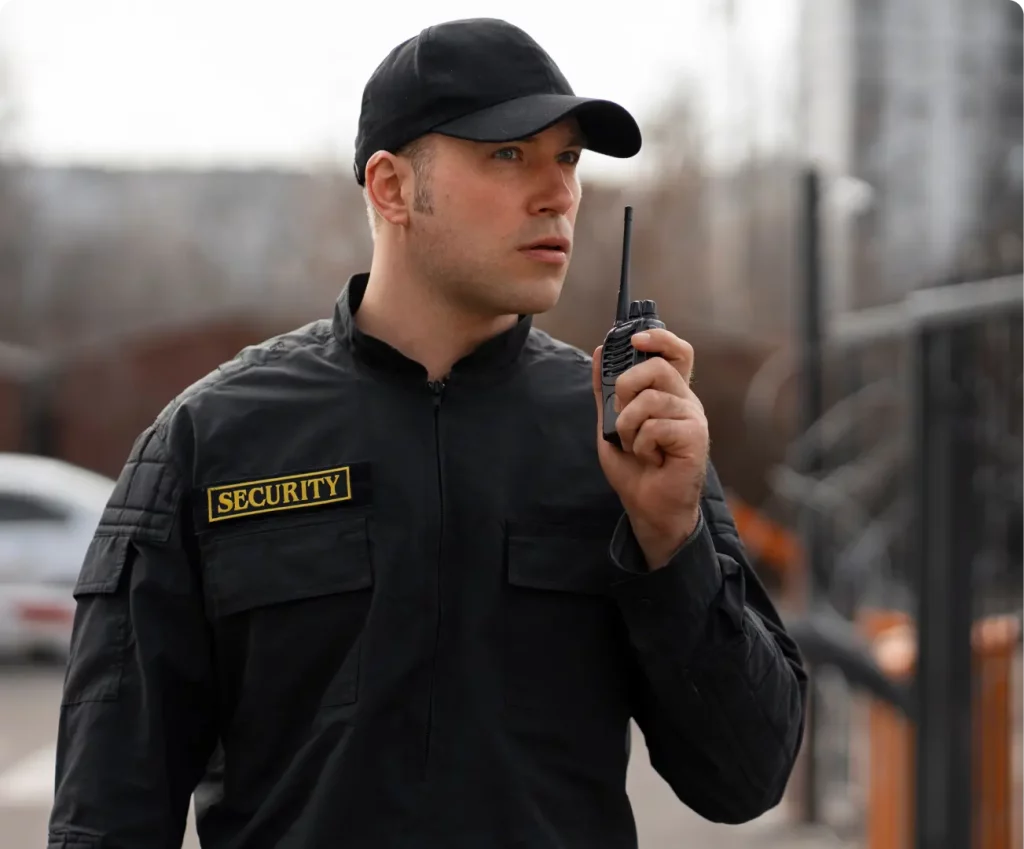In recent weeks, the BBC News radio program “File on 4” brought to light a troubling issue in the UK’s security training sector. Their documentary, Security Threat: Sham training courses risk public safety, exposes fraudulent practices within some British security training providers.
Contents of the Documentary
The documentary featured an undercover reporter who attended a ‘fast-track’ Door Supervisor course.
The role of a Door Supervisor is crucial in diverse security settings in the UK, such as festivals, shopping malls, bars, clubs, restaurants, offices, and hospitals. The process of obtaining this licence involves two steps: first, applicants must complete a mandatory 6-day training program covering topics like first aid, counter-terrorism awareness and crowd control, and then they must apply for a Door Supervisor licence from the Security Industry Authority (SIA), the governing body for the private security sector.
The documentary exposed a situation where a Steps Institution trainer in East London accepted a bribe from an undercover reporter, allowing the reporter to complete the course in significantly less time than the total duration. To conceal this deception, the trainer forged timesheets, falsely indicating that the reporter had completed the entire six-day course. Additionally, the trainer instructed the reporter on which answers to circle during the exam as part of their fraudulent arrangement.
The documentary also addresses the tragic Manchester Arena terrorist attack on May 22, 2017, during an Ariana Grande concert in Manchester, England and how the incident exposed a fatal lack of training. In the inquiry that followed, a steward revealed that had he received better training, he could have responded more effectively to the report made to him on the night of the attack, potentially preventing the tragic incident.
SIA’s Investigation and Suspensions
In response to the documentary’s release, the SIA has initiated an investigation and suspended the individuals involved. Given the evidence of potential criminal activities presented in the documentary, the SIA has referred the matter to the police. Furthermore, the SIA is collaborating with awarding bodies and Ofqual to conduct an extensive investigation. Licences will be suspended if they determine that qualifications have been awarded unsafely.
Preventing Malpractice and Fraud in the Industry
The SIA is actively committed to eliminating poor practices within the security sector and assisting training providers that maintain high standards. They have a stringent approach to combat malpractice and fraud. The SIA takes allegations of malpractice seriously and initiates investigations into such claims. They aim to maintain the integrity and reliability of qualifications within the industry.
Additionally, awarding bodies play a crucial role in preventing malpractice and fraud. They conduct unannounced spot checks to ensure training providers adhere to industry standards and regulations. This proactive approach allows them to identify and rectify any malpractice promptly.
My Message to You
For students seeking SIA training, my advice is clear: steer clear of shortcuts and avoid shelling out extra money for so-called ‘fast-tracked’ courses. With subpar training, you jeopardise your safety and put the public at risk. While things usually go smoothly, that 1% chance of something going wrong can mean the difference between life and death. Therefore, it is vital to understand how to respond and act correctly in these circumstances.
To those in the business of providing SIA training and the dedicated training staff, I commend most of you for maintaining high standards. I urge you to stay the course, and if you come across any instances of training centres engaging in malpractice, please report it to the relevant authorities. Through the collaborative efforts of the SIA, awarding bodies, and training providers, those who engage in wrongdoing and put the public in danger will hopefully be identified and barred from this industry.
Awarding bodies, your role in upholding the quality of SIA training is crucial. I implore you to continue supporting training providers through increased announced and unannounced quality assurance visits, reviews, and telephone interviews with learners.
Conclusion
In our ongoing effort to safeguard the UK, we must remain steadfast and remember that hope is still on the horizon. Many training providers adhere to the SIA and awarding body guidelines, ensuring quality training. Additionally, countless experienced and qualified security operatives who have completed their training properly are employed in the industry, working tirelessly to protect us daily.
Remember, when pursuing SIA training, prioritise safety for yourself and others by avoiding shortcuts and carefully selecting a reputable training provider.
Get your Legal SIA Licence by signing up for our SIA Security courses
Security Courses
Book NowRated Excellent
on major review sites

FAQS
What does it mean to have a fraudulent SIA certificate?
A fraudulent certificate is one that has been obtained through actions that are not permitted by the SIA or its awarding bodies. This could involve obtaining the qualification without completing the entire course or failing to meet the total hours required by the SIA. Furthermore, receiving any form of assistance during exams that aids in achieving correct answers is strictly prohibited according to SIA regulations.
How can I determine if a training provider adheres to regulations and avoids fraudulent practices?
In general, you can assess the professionalism of a business by examining its website. A website that appears current, exhibits good design, and offers substantial, valuable information is often associated with a reputable business. This principle also applies when selecting your SIA training course provider. Investing a little more is advisable, as well as choosing a training provider with a sophisticated website, a sense of legitimacy, and a history spanning several years in the industry. If you need training, consider booking with Hurak, a company with over a decade of experience in the compliance training sector. It is renowned for its diligent screening and vetting of all its training providers.
What should I do if I or someone I know has achieved a qualification fraudulently?
If you or someone you know has acquired a qualification fraudulently, it’s crucial to cease any related activities as it poses a risk to both personal safety and public well-being. The recommended course of action is to enrol with a reputable training provider and diligently complete the necessary training, including attending the entire duration of the course and successfully passing the exams without any external assistance.




